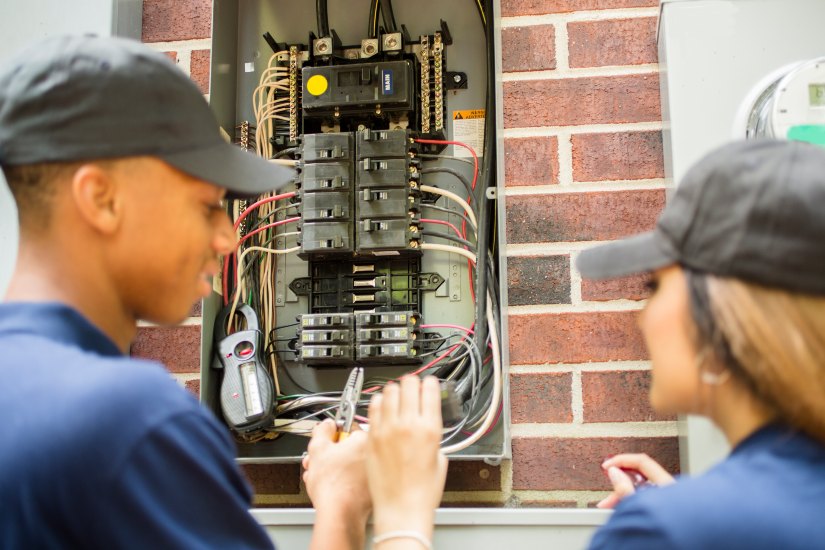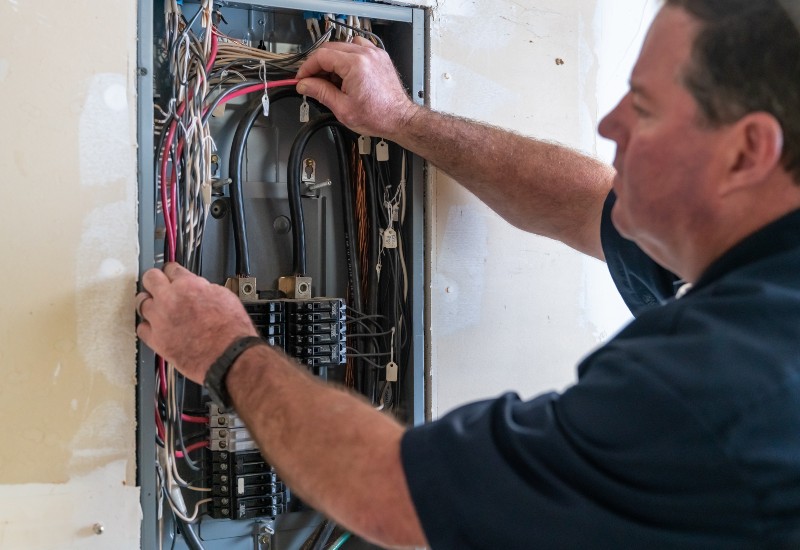When the lights flicker or a breaker trip without warning, you’re reminded how much of your comfort and safety depends on electricity. Circuit breakers work silently behind the scenes to guard against overloads and dangerous faults. They keep your home running smoothly while preventing damage to wiring, appliances, and gadgets. But how much do you know about your home’s circuit breakers? Here’s a look at how they work, why they’re important, and when you should think about circuit breaker replacement.

What Is a Circuit Breaker?
A circuit breaker is an automatic switch designed to stop the flow of electricity when it becomes unsafe. If too much current runs through your wiring or a short circuit occurs, the breaker “trips.” Unlike old-fashioned fuses, which must be replaced after they blow, breakers are resettable. Once you fix the problem that caused the breaker to trip, simply flip the switch all the way off and back on again to restore power. This convenience is one reason why modern electrical panels rely on breakers rather than fuses.
Why Are Circuit Breakers Important?
If your house was built within the past 50 years or so, it probably has circuit breakers, not fuses. Here’s how they safeguard your home:
- Prevent electrical fires: Wiring that carries too much current heats up. Without a breaker to stop it, that heat could overheat the wires, melt the insulation, and spark a fire.
- Protect appliances: TVs, refrigerators, computers, and HVAC systems all rely on safe, steady electricity. Breakers stop sudden surges that can fry sensitive components.
- Safeguard people: Faulty wiring and damaged devices can cause dangerous shocks. Breakers reduce this risk.
How Does a Circuit Breaker Work?
Inside the device are parts designed to react to dangerous conditions in milliseconds. Here’s what happens:
- Current flows through contacts. Under normal conditions, electricity passes from a fixed contact to a movable one.
- The trip unit monitors flow, constantly checking whether the current is within safe limits.
- A fault occurs. Perhaps you tried running too many appliances, or a device short-circuited when plugged into the wall.
- The breaker trips. In the case of an overload, a bimetallic strip heats up, bends, and triggers the contacts to separate. In the case of a short circuit, an electromagnetic coil reacts instantly, pulling the contacts apart.
- An arc forms and is extinguished. When the contacts are separated, a small electrical arc appears. Breakers are built with components like arc chutes or cooling channels that quench the arc quickly.
- The circuit is safely interrupted. Power flow stops, protecting the wiring, appliances, and people involved.
What Are the Main Circuit Breaker Types?
Different circuit breakers are built for different levels of protection and environments. Here are the most common low-voltage home circuit breakers:
- Miniature circuit breakers (MCBs) are small and cost-effective, making them a popular choice for most residential panels. They easily handle normal household circuits such as lighting and outlets.
- Residual current circuit breakers (RCCBs) detect leakage currents, often caused by faulty appliances or water exposure. They’re commonly used in bathrooms, kitchens, and outdoor circuits.
- Residual current circuit breakers with overcurrent protection (RCBOs) are a combination of MCBs and RCCBs, covering both overload/short circuit protection and leakage detection in one device.
- Molded case circuit breakers (MCCBs) are used where more current capacity is needed, often in commercial or industrial settings, but sometimes in large homes with heavy electrical demands.
How Do You Choose a Circuit Breaker?
Choosing a replacement circuit breaker isn’t just about buying whatever fits in your panel. Consider these factors to promote safe, reliable protection:
- Capacity: Breakers are rated in amps. Installing a breaker that’s too small causes constant tripping. Too large, and it won’t trip when it should.
- Protection type: Decide whether you need only overload protection (MCB), leakage detection (RCCB), or both (RCBO). For larger loads or special applications, an MCCB may be the best choice.
- Panel compatibility: Panels aren’t one-size-fits-all. Using the wrong breaker may lead to poor connections, overheating, or voided safety certifications. If you’re unsure, an electrician can confirm which breakers are approved for your panel’s brand and model.

When Should You Think About Circuit Breaker Replacement?
Breakers are designed to last for decades, but they will eventually need to be replaced. Here are signs it’s time for circuit breaker replacement in your home:
- Frequent tripping: If a breaker trips repeatedly despite normal use, it may be worn out. In some cases, constant tripping signals that the breaker can no longer handle its rated load safely, and continuing to reset it puts stress on your wiring and appliances.
- Outdated design: Panels built before modern safety standards may not be able to handle today’s electrical loads. If yours is more than 15 to 20 years old, a panel upgrade might be in order.
- Visible wear or damage: Scorch marks, melting, or a burning smell are red flags you shouldn’t ignore. These signs often mean the breaker is overheating or failing to trip properly, which poses serious fire and electrocution risks. Call an electrician immediately if these warning signs appear.
- New appliance installation: High-draw appliances like ovens, dryers, hot tubs, electric vehicle chargers, and HVAC units often require dedicated circuits with appropriately sized breakers. In some cases, installing a subpanel is the safest way to handle the additional load, especially if your main panel is already close to capacity.
Contact Us for Circuit Breaker Replacement Services
Replacing a breaker is not a DIY project. It requires training and the right equipment to handle safely. Leave the job to Brighter Days Electric, and our licensed electricians will ensure the work is done correctly to protect your home from hazards. We have served the Treasure Coast for decades, so we know how to keep your home safe and your power reliable. As a family-run, owner-operated business, we pride ourselves on delivering a stress-free experience tailored to your schedule, budget, and needs. Contact us today to request circuit breaker replacement in Port St. Lucie, Indian River, or Martin County.

